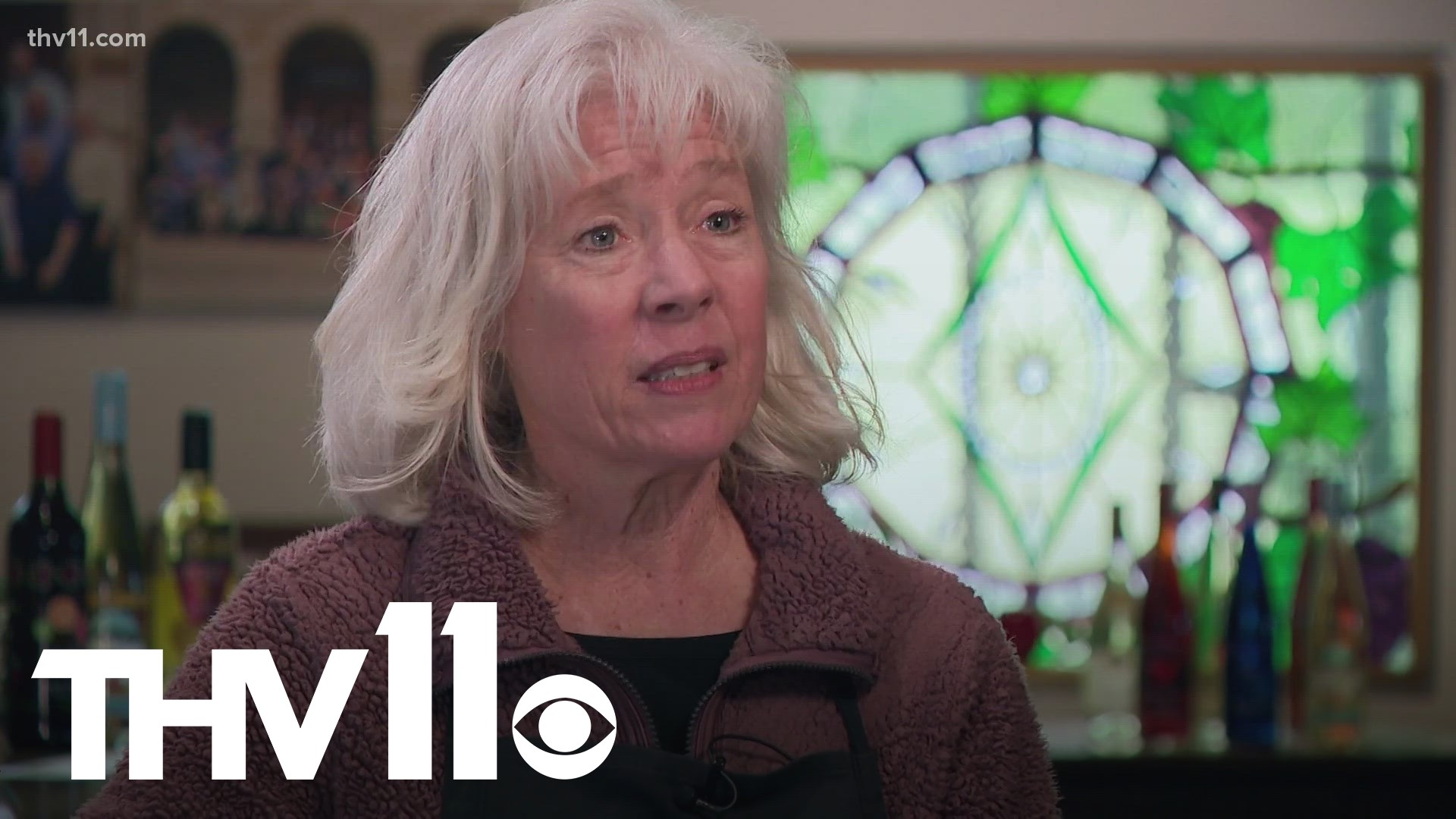ALTUS, Ark. — Agriculture is Arkansas’s largest industry and generates more than $16 billion in revenue every year. Though there's another big money industry you may not think about in our state— wine.
The Natural State is home to some of the largest wine producers in the country.
“From Little Rock, to here to Northwest Arkansas, including Eureka Springs, you know, you can hit almost all the wineries in the state,” said Renee Threfall with the University of Arkansas.
While Arkansas is known for its rice and soybean fields, the wine industry continues to grow in our state. Hundreds of acres are set aside for grapes many of which will end up in bottles and shipped out across the country.
“We have a very well-established presence in the U.S. market in terms of a couple of our larger producers in the state,” Threlfall explained.
There are 21 wineries dotting much of the state, and some like Post Winery in Altus, Arkansas have been doing it for generations.
“The Post family came to America in 1872 and planted its first vineyards in Altus 1880,” said Tina Post with Post Winery. “So, I’m part of the g five generation and we have g sixers, and a seven running around here and there.”
Post has gotten to see firsthand just how much both the wine-making process and their family business have evolved during that time. Today they, produce about 250,000 gallons of wine a year.
“We had just a little bottling line, and we were putting stamps, tech stamps on the bottle to you know our line expanded and mostly automated,” she described. “From having just barrels to stainless steel, the only time we use wood is when we want to use wood to finish something a little differently”
The wine industry is a rich history in Arkansas that Renee Threlfall has been studying for decades. She explained how the constant evolution is key, but not just in how the wine is made.
“Generational changes, more acceptability to newer technologies. So, looking at the sustainability issues that we may have with glass, or operations in terms of water management,” said Threlfall.
Those changes come amid concerns over the future of the wine industry.
A recent report by Silicon Valley Bank shows that people younger than 60 aren't drinking as much wine— it’s a decline seen since 2007.
Threlfall explained that continuing to appeal to every generation is a big focus that will help the industry continue moving forward.
“A lot of it is about how consumers perceive their usage of wine and how do we change that, you know, how do we learn more about that?” Threlfall added.
Focusing on what people want is something Post Winery has tapped into over the last few years.
“Another thing we see with the young people, they're coming here for us to celebrate occasions, wine is still seen as part of a very celebratory thing,” said Post.
Keeping an eye on what's popular has helped contribute to their growth.
“See where the markets going, what's kind of trending, and see if there's a place you can jump in,” she said.
That includes going beyond just what they're bottling and instead turning their winery into a whole experience itself.
“Farm to table. that this is our slow food. We make it fresh; we bake our sourdough bread every day, we make everything from scratch,” Post described.
The wine industry is an adapting business that generated close to a billion dollars last year and drew in more than 29,000 tourists.
Threlfall explained how there's still more that could be done to secure its future and help the state have an even bigger impact on the industry nationwide.
“Having more state regulations that enable us to become a better state in terms of wine production is really where we need to be,” she said. “Our shipping abilities into and out of the state.”
Right now, there are 29 dry counties across Arkansas, and she said making changes to dry county laws could also help make a big difference.
“You can't have a winery in a dry county,” Threlfall added.
As studies keep a close eye on wine industries across the country and where it's headed, Post said when it comes to wine in the Natural State— it's here to stay.
“It is ageless and timeless. It's not going away,” said Post.

